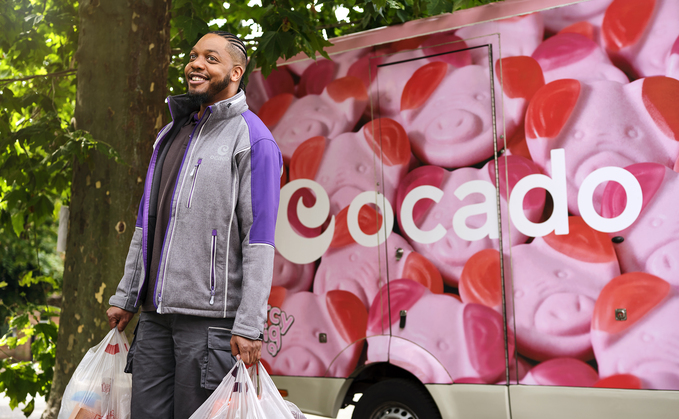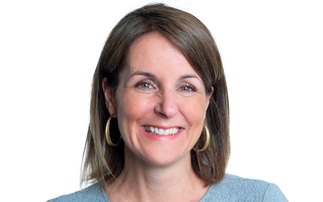Credit: Ocado
Grocery deliver firm secures validation from Science Based Targets initiative (SBTi) for goals to tackle business and value chain emissions
Ocado Retail has set its sights on becoming a net zero emissions business by 2040, having secured validation for its climate goals from the Science-Based Targets initiative (SBTi), it announced last week.
The announced came in the grocery delivery firm's inaugural sustainability report published last week in which it outlined its multi-pronged approach to decarbonising its business over the next 16 years, including through climate action, responsible sourcing practices, food waste reduction, and improved packaging.
The report notes that 99 per cent of Ocado's emissions come from across its supply chain, with 56 per cent of these Scope 3 emissions coming from agriculture.
So far, Ocado claims to have reduced its Scope 3 emissions by six per cent since its 2021 baseline year, while at the same time increasing its overall sales volumes.
In order to drive further towards its decarbonisation targets, Ocado said it planned to invest in more industry-wide collaborations such as food waste charity the Waste & Resources Action Programme (WRAP), the British Retail Consortium's (BRC) sustainability data platform initiative the Mondra Coalition, and the Manufacture 2030 value chain emissions reduction initiative, which it said would help it to better engage with suppliers and build a more resilient supply chain.
In addition, Ocado has pledged to ensure at least 50 per cent of its whole produce and grains are certified by robust environmental schemes, and for 100 per cent of its own range meat, dairy, and eggs to be sourced to a ‘Better' standard according to its ‘Sourcing Better' Framework by 2030.
Ocado is also aiming to increase the average recycled content of its own-brand product plastic packaging to 30 per cent, and to ensure that 100 per cent of its packaging is recyclable by 2025.
That comes in addition to the online retailer's pledge to reduce food waste in its own operations by 20 per cent by 2025, and to halve it by 2030 - both from 2022 levels - and to re-distribute 100 per cent of its surplus edible food by 2025. Last year Ocado said it re-distributed £10.7m-worth of surplus food stock to its network of charity partners.
Other ambitions highlighted in the report include boosting its vegan and organic products range in order to help "improve health whilst minimising environmental impact".
Ocado chief executive Hannah Gibson said she was "proud" to be sharing the firm's first sustainability report, as she promised that "in an ever-changing world, striving to achieve these commitments will be a constant focus" for the company.
"Whether at an individual or organisational level, we all have a responsibility to ensure that together, we are stepping up and taking action in the fight for the future of our planet," she said.
"For Ocado, that includes working to become a net zero business, reducing food waste and helping our customers make healthy and sustainable choices, plus so much more. Alongside our customers, suppliers and stakeholders, we're working together for a better planet and in this report, you will read about our progress so far, what #PlanetTogether means to us and our plans for the future as we strive to reach net zero by 2040."
You can now sign up to attend the fifth annual Net Zero Festival, which will be hosted by BusinessGreen on October 22-23 at the Business Design Centre in London.








